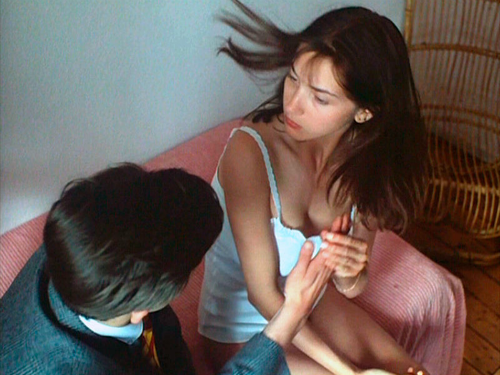
« Comme le pain quotidien s’approche chaque jour de la bouche, il faudrait que le film rapproche le spectateur de son quotidien profond: aimer, donner la vie, la vivre, faire un enfant. C'est cela que représente Marie : elle est une image… Elle est une image vierge. Pas de traces. Pas d'empreintes. Être vierge, c'est être disponible, être libre. La densité humaine de chaque couple se retrouve dans l'histoire du couple que forment Joseph et Marie. »
Jean-Luc Godard
“Like Roberto Rossellini's The Miracle before it and Scorsese's The Last Temptation of Christ after it, Hail Mary became a cause célèbre on subject alone, berated by the Pope and picketed by religious groups before it could even open. Also like those films, it's a profoundly felt, gravelly beautiful work of faith, where the potentially parodist aspects of the premise (the Nativity story recast in modern-day Geneva) are consistently tempered by august contemplation. The tenderly reverential attitude of the film would seem surprising coming from Jean-Luc Godard, had it not been so much a part of the great French filmmaker's mellow, ruminating period of rediscovery. Just as Every Man for Himself inaugurated the '80s by resurrecting his human interest that had been pulverized in favor of militant indoctrination, Hail Mary marks the decade's midway point by taking its spiritual temperature. The Bible may provide the outline, but Godard's version isn't a Classics Illustrated retelling: Teenage Marie (Myriem Roussel) plays basketball when not pumping gas at her father's station, taxi driver Joseph (Thierry Rode) is her sexually frustrated boyfriend; a jet whooshing overhead announces the arrival of testy, unshaven Gabriel (Philippe Lacoste), who jumps into Joseph's cab and tells the virginal Marie of her pregnancy.”
Fernando F. Groce1
- 1Fernando F. Groce, “Hail Mary,” Slant Magazine, 8 October 2006.